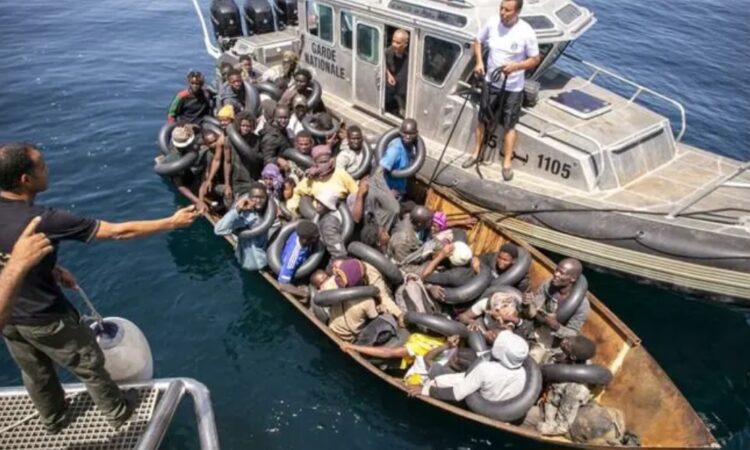Illegal Migrant Boats Intercepted at Sea While Heading to Europe, You Won’t Believe What Happened Next

Port authorities in the Balearic Islands are struggling to handle the growing number of migrant boats intercepted in the Mediterranean. These boats, often carrying people fleeing hardship and seeking better opportunities, create a complex problem for officials.
In 2024, 54 migrant boats were seized in the waters around the Balearic Islands, according to Spanish media. These boats are usually filled with essential items like life jackets, blankets, and fuel containers. Unfortunately, these items don’t meet strict European Union safety rules, so they often have to be destroyed.
However, port officials try to salvage what they can. Engines from some boats are given to training schools, where they can be used to teach students. Other parts of the boats are sold to avoid waste. Port manager Kiko Villalonga explained that while authorities aim to destroy as little as possible, many of these boats are made of fiberglass, a material that is harmful to the environment.
Two fiberglass boats and five engines were donated to training schools last year, giving some value to what might otherwise be discarded.
Spain has become a preferred route for people smugglers. In 2024, almost 64,000 migrants risked dangerous sea journeys to reach Spanish territory, with most arriving in the Canary Islands. More recently, however, the Balearic Islands have seen an increase in arrivals, particularly from Algeria. Many of these migrants are young and traveling alone, adding to the challenges faced by local authorities.
Marga Prohens, the leader of the Balearic government, has expressed concern over the growing number of arrivals. She noted that many of the migrants are unaccompanied minors, requiring special care and resources.
Spain is seen by smugglers as an easier target compared to other countries like Italy. Under Prime Minister Giorgia Meloni, Italy introduced stricter measures to curb illegal migration, reducing arrivals by 60% in one year. Spain’s less aggressive policies, however, have made it a more attractive destination for people smugglers.
The UK is also experiencing an increase in migrant crossings. So far in 2025, 400 migrants have arrived, with 260 people crossing in just one day. These journeys are often dangerous, and tragically, the year has already seen its first migrant death.
Last Friday, a Syrian man lost his life after being crushed on an overcrowded dinghy in the English Channel. The French coastguard rescued 35 others from the same boat. This highlights the risks many migrants face as they attempt to reach safety.
The situation in the Balearic Islands, Spain, and the UK reflects a larger issue of global migration. People are fleeing war, poverty, and persecution, often risking their lives in the process. Countries are left balancing the need to manage migration with the humanitarian responsibility to help those in desperate need.
For the Balearic Islands, the challenge remains: how to handle the increasing number of boats while minimizing waste and environmental damage, all while dealing with the human cost of migration.




